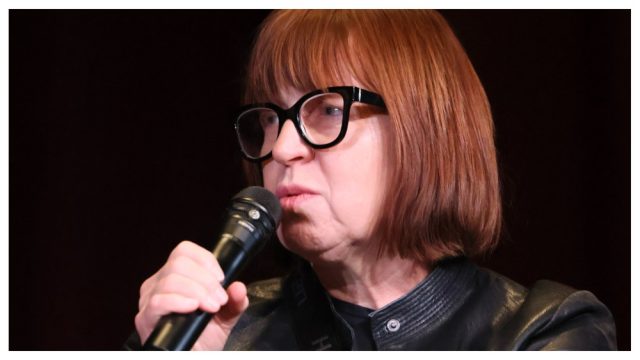“The Zone of Interest” producer Ewa Puszczyńska has teamed up with France’s Elzévir Films and Ireland’s Copper Alley Prods. on “Safe and Silent,” backed by Arte France.
“I decided to join the project because of the quality of the script. It made me excited and so was Arte when they decided to come on board,” says Denis Carot, who will co-produce alongside Ulysse Payet and Copper Alley’s Lara Hickey.
“I had a very good experience collaborating with Polish partners on [Jean-Pierre Bacri starrer] ‘Back in Business,’ which we shot in Poland back in 2016. There are many talented and experienced producers and Ewa is certainly one of the best among them. Her impressive filmography speaks for itself,” adds Carot.
While “The Zone of Interest” scored five Oscar nominations this year, Puszczyńska experienced Oscar glory with Paweł Pawlikowski’s foreign-language film winner “Ida” (2015) and nominee “Cold War” (2019). Now, she wants to focus on emerging female filmmakers.
“I have been advocating for finding new ways allowing women to make their debuts. It was time to turn those words into action,” she says. She is also developing Ulrike Tony Vahl’s “Crux” and Marta Prus’ “Night Butterflies.”
“Safe and Silent,” directed by rookie Justyna Tafel, will be lensed by Kate McCullough, winner of the European Film Award for “The Quiet Girl.” In the film, one of Poland’s leading actors, Agnieszka Grochowska, will play a recently divorced woman, Kinga, who wants to create a refuge for her children and choses a gated community full of surveillance cameras as a place to live.
“Over the course of the story, we are getting to know this family and we learn what happens when people don’t trust each other. It’s a miniaturized image of modern society,” says Puszczyńska. “The rapid development of technology has resulted in significant social changes. The surveillance society erects walls and fences, closes gates and constantly monitors our space. Anyone who doesn’t belong in our ‘bubble,’ anyone who’s from the outside is perceived as a stranger or an enemy, someone suspicious and inferior.”
Tafel was inspired by personal experiences and by observing social changes in the world after 9/11, she says. “My own experiences made me fascinated by what goes on in the head of a caring, loving mother who only wants what’s best for her children. The first time Kinga uses the easily accessible surveillance tools available at her new home, she does it by chance. They bring her solace.”
But the tools that were supposed to give her a sense of security only intensify her fear.
“Kinga slides deeper and deeper into addiction to observation and control, but she always knows too little. I also know that the obsession with control is most destructive to the person who does the controlling,” she says.
“I understand why people, especially parents, when faced with this dilemma — safety or freedom — will panic and choose the former. We cannot see the price we are paying. This film is a product of my fascination with an enigmatic feeling that is trust. Once lost, it can never be regained, but it’s an essential ingredient of perhaps the most valuable of all feelings: love,” the director says.
Technology will influence the look of the film, says Tafel, mentioning “Blow-Up,” “The Conversation” and “Hidden.” Sound — “or rather the lack of it” — will also play an important part.
“The disturbing silence in my film, accompanying the lonely viewing of surveillance materials, is a reminder that without direct human contact, we never have access to the full picture of the world,” she says. “It’s important that viewers feel Kinga’s anxiety and experience the same relief. That is precisely why I enrich psychological drama with elements of a thriller. Looking at someone through a surveillance camera automatically profiles them as an outsider and, consequently, as a threat. Characters and objects will appear and disappear, creating the feeling there is always ‘something lurking around the corner’.”
“This film will find its audience,” says Puszczyńska. “It’s becoming more and more difficult to live in a society of suspicion and false information. I’m no longer so naïve as to think that movies can change the world. But I believe they can stir the imagination and the desire to talk.”





















